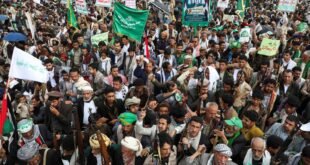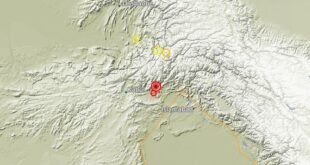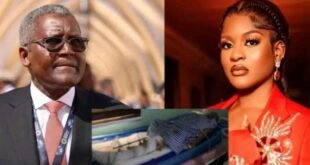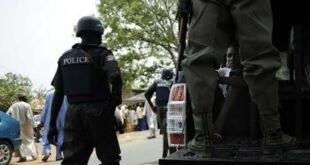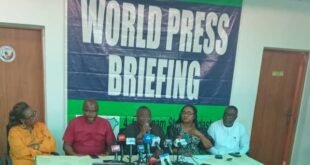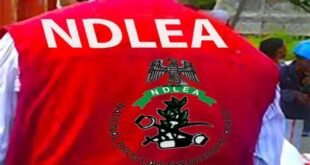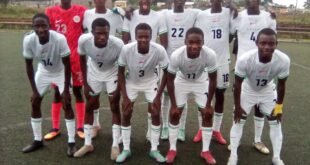In recent years, the conversation on the development of Nigeria has moved from what the only government can do to what the citizens themselves must contribute. This move is not accidental. It is the result of the growing recognition that the construction of a strong, prosperous and united country requires the active involvement of its people. In northern Nigeria, where socio -economic challenges are aggravated by cultural complexity and insecurity, the national orientation agency (Noa) has worked tirelessly to inspire citizens to take the property of the future of the nation.
The Noa campaign for active citizenship is rooted in a simple but powerful belief: when people include their civic responsibilities and are motivated to participate, they become catalysts for change. This is particularly vital in northern Nigeria, where communities often feel disconnected from governance machinery. Fill this gap is at the center of the agency’s mission.
One of the main thrusts of the campaign is the creation of awareness. Many citizens, especially in rural areas, are not fully aware of their rights or the role they can play in modeling the society in which they live. The Noa led the message to markets, schools, community gatherings and places of worship. In these spaces, officials involve people in simple conversations on issues such as the vote, the service to the community, the payment of taxes and the possession of responsible leaders. The goal is to make civic responsibility comparable and practical rather than abstract or distant.
In northern Nigeria, where strong traditional structures and religious institutions play a central role in daily life, Noa has wisely collaborated with traditional sovereigns, imams, shepherds and leaders of the community. These figures are voices of trust that can speak persuasively of the need for citizens to take part in governance and development. This collaboration has proven effective in overcoming the resistance to new ideas and to combat disinformation. Working with respected leaders, the agency guarantees that the message resounds deeply and spreads widely.
The challenges in the north of Nigeria are not small. High unemployment, low literacy levels and persistent insecurity in some states can make people feel impotent. Yet the Noa campaign underlines that even small citizenship acts can have a chain effect. Keep your environment clean, participate in local meetings, register for votes and support community projects are all ways in which people can contribute to the wider framework of national progress. In the villages and cities where this message has taken root, there is already a visible improvement in the way people are seen as part of the solution.
A stimulating example comes from a community in the state of Katsina in which Noa’s awareness program led to the formation of a group of young volunteers who started eliminating the drainage channels blocked to prevent floods. This simple act not only reduced the risks to health, but has also strengthened the link between the residents. These stories show that active citizenship does not only concern politics; These are daily actions that make life better for everyone.
Education is another pillar of Noa’s strategy. In the North, where access to quality education remains irregular, the agency has emphasized on the education of both young people and their role in their role in the construction of the nation. Through school awareness programs, debates and wise competitions, students are encouraged to think critically about the future of Nigeria and their role in modeling it. External formal schools, literacy programs for adults and community dialogues provide roads for older citizens to know the governance processes, their rights and the importance of peaceful coexistence.
The construction of peace is a crucial aspect of the countryside in northern Nigeria. Given the history of the region of common clashes and violence linked to the insurrection, the Noa incorporates messages of tolerance, units and dialogues in its civil education efforts. By teaching people to resolve disputes without violence, the agency is helping to create a more stable environment in which development can thrive.
Noa also uses modern communication tools to integrate its basic efforts. Radio programs in local languages such as Hausa, FullFulde and Kanuri are particularly effective in reaching the rural communities that may not have access to television or internet. These programs have call segments in which citizens can ask questions, share problems and suggest solutions to community problems. In this way, the agency promotes a two -way dialogue that builds trust and promotes inclusiveness.
Women and young people are key objectives of active citizenship. In many northern communities, women have traditionally been excluded from the public decision -making process. The Noa is working to change this by encouraging women to participate in community meetings, hire leadership roles in local associations and engage in economic activities that improve their independence. The young people, who constitute most of the population, are encouraged to see each other as the leader of today, not only tomorrow. By involving them in the volunteer work, in the programs for acquiring skills and in the defense campaigns, the Noa is channeling its energy towards constructive purposes.
Critically, the agency does not avoid dealing with the obstacles that discourage participation. Corruption, the lack of transparency and the promises dissatisfied by the leaders can erode public trust. Noa’s approach is to allow citizens to request responsibility, not with hostility but with persistence and informed action. Through the meetings of the Town Hall and the community feedback sessions, people are taught how to constructively involve their representatives, monitor development projects and ensure that public resources are used at their expected purposes.
The results of these efforts may not be immediate, but they are significant. The communities that once have passed passively the government’s intervention are starting to take the initiative. Young people are organizing cleaning units, women’s groups are creating cooperatives and local committees are monitoring public works. Each of these actions, although small alone, contributes to a culture in which citizens feel responsible for their environment and their country.
The vision that guides the Noa campaign for active citizenship is the one in which the Nigerians are not seen as spectators but as active actors in the construction of the nation. For northern Nigeria, this vision is both urgent and full of hope. Urgent, because the region has to face unique challenges that require the full involvement of its people. Hope, because resilience, hospitality and sense of community that define the North are powerful assets on the journey to a better Nigeria.
While the campaign continues, it is clear that the task of building a better Nigeria cannot be left to the government alone. Citizens must understand that their voices, their actions and their commitment count. Whether it is wisely voting, obeying the laws, participating in community projects or simply by spreading messages of peace, each contribution adds to the fabric of national unity and progress.
In the end, active citizenship is not a slogan. It is a way of life. And in northern Nigeria, the national orientation agency is illuminating the path, showing that when people take responsibility for their communities and their country, a stronger and more prosperous Nigeria is at hand.
 JamzNG Latest News, Gist, Entertainment in Nigeria
JamzNG Latest News, Gist, Entertainment in Nigeria

